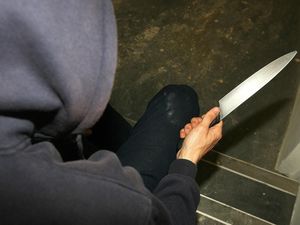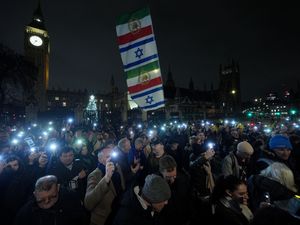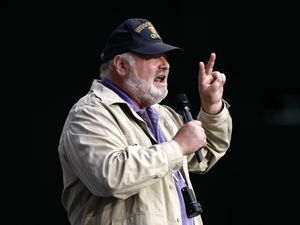Police get £100m to tackle knife crime ‘epidemic’
The cash injection is earmarked for overtime costs and specialist units dedicated to combating serious violence.

Police will get a £100 million cash injection to tackle the knife crime crisis, the Chancellor has announced.
The extra funding for forces in England has been earmarked for overtime costs and specialist units dedicated to combating serious violence.
While the measure was welcomed by police chiefs, one rank-and-file leader warned it was only a “short-term fix”.
Ministers have come under pressure to provide a financial boost for police following a spate of fatal stabbings.
Total funding for forces in England and Wales reduced by 19% in real terms from 2010/11 to 2018/19, according to the National Audit Office.
Officer numbers have fallen by nearly 20,000 since 2010.
In December, Home Secretary Sajid Javid unveiled a provisional settlement that could see police funding rise by nearly £1 billion from April, including money raised through council tax.
Chancellor Philip Hammond said many police and crime commissioners have already committed to using this extra funding to recruit and train additional officers.
“But that takes time,” he said. “And action is needed now.”
He said the additional £100 million over the course of the next year will be ring-fenced to pay for additional overtime targeted specifically on knife crime, and to fund new violent crime reduction units to deliver a “wider cross-agency response to this epidemic”.
Mr Javid said the money, including £80 million of new funding from the Treasury, will allow police to swiftly crack down on knife crime in areas where it is most rife.
He added: “I am deeply concerned by the rising level of knife crime that is devastating communities and robbing young people of their lives and futures.
“Law enforcement plays a key role – and it is clear from speaking to police leaders in recent weeks that they need an immediate increase in resources.”
National Police Chiefs’ Council chairwoman Sara Thornton welcomed the announcement.
She said: “It will help police forces strengthen our immediate response to knife crime and serious violence.
“Bringing violence down is a police priority. We know what works to bring down violence and this additional funding will help us to increase the number of officers available to carry out targeted patrols in crime hotspots, increase our use of stop and search and disrupt gangs and crime groups.”
John Apter, chairman of the Police Federation of England and Wales, said: “Whilst the funding is welcome it is, however, just a short-term fix as knife crime and violent crime continues to plague our towns and cities. We still urgently need additional resources to solve this issue in the long run.
“The Government must make a significant investment in the spending review to give police the long-term boost they need.”
London Mayor Sadiq Khan welcomed the “limited action” but said it was a “drop in the ocean” compared with “huge cuts” to police and preventative services.
The Metropolitan Police welcomed the additional funding, saying: “Bearing down on violence is our top operational priority and we will continue to work with the Government, the Mayor of London and partners across London so that we can keep London safe.”
West Midlands police and crime commissioner David Jamieson said the money does not make up for cuts of £175 million his force has faced, but acknowledged it will “partially cover the extra funding needed in the short term”.
Shadow chancellor John McDonnell said he was “furious” about the money allocated for policing.
A string of recent deaths has prompted fresh debate over police resources.
Amid mounting calls for action, Theresa May sparked a backlash when she insisted there was “no direct correlation between certain crimes and police numbers”.
Mr Hammond was also criticised earlier this month after suggesting forces should use existing budgets to tackle knife crime.
Earlier this year it was disclosed that the number of fatal stabbings in England and Wales had risen to its highest level since records started more than 70 years ago.
Official statistics showed there were 285 homicides where the method of killing was by a knife or sharp instrument in the year to March 2018.
This was the highest number since the Home Office’s Homicide Index began in 1946.




